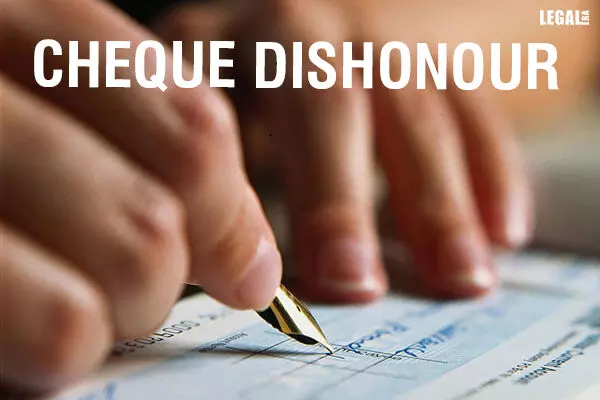- Home
- News
- Articles+
- Aerospace
- Artificial Intelligence
- Agriculture
- Alternate Dispute Resolution
- Arbitration & Mediation
- Banking and Finance
- Bankruptcy
- Book Review
- Bribery & Corruption
- Commercial Litigation
- Competition Law
- Conference Reports
- Consumer Products
- Contract
- Corporate Governance
- Corporate Law
- Covid-19
- Cryptocurrency
- Cybersecurity
- Data Protection
- Defence
- Digital Economy
- E-commerce
- Employment Law
- Energy and Natural Resources
- Entertainment and Sports Law
- Environmental Law
- Environmental, Social, and Governance
- Foreign Direct Investment
- Food and Beverage
- Gaming
- Health Care
- IBC Diaries
- In Focus
- Inclusion & Diversity
- Insurance Law
- Intellectual Property
- International Law
- IP & Tech Era
- Know the Law
- Labour Laws
- Law & Policy and Regulation
- Litigation
- Litigation Funding
- Manufacturing
- Mergers & Acquisitions
- NFTs
- Privacy
- Private Equity
- Project Finance
- Real Estate
- Risk and Compliance
- Student Corner
- Take On Board
- Tax
- Technology Media and Telecom
- Tributes
- Viewpoint
- Zoom In
- Law Firms
- In-House
- Rankings
- E-Magazine
- Legal Era TV
- Events
- Middle East
- Africa
- News
- Articles
- Aerospace
- Artificial Intelligence
- Agriculture
- Alternate Dispute Resolution
- Arbitration & Mediation
- Banking and Finance
- Bankruptcy
- Book Review
- Bribery & Corruption
- Commercial Litigation
- Competition Law
- Conference Reports
- Consumer Products
- Contract
- Corporate Governance
- Corporate Law
- Covid-19
- Cryptocurrency
- Cybersecurity
- Data Protection
- Defence
- Digital Economy
- E-commerce
- Employment Law
- Energy and Natural Resources
- Entertainment and Sports Law
- Environmental Law
- Environmental, Social, and Governance
- Foreign Direct Investment
- Food and Beverage
- Gaming
- Health Care
- IBC Diaries
- In Focus
- Inclusion & Diversity
- Insurance Law
- Intellectual Property
- International Law
- IP & Tech Era
- Know the Law
- Labour Laws
- Law & Policy and Regulation
- Litigation
- Litigation Funding
- Manufacturing
- Mergers & Acquisitions
- NFTs
- Privacy
- Private Equity
- Project Finance
- Real Estate
- Risk and Compliance
- Student Corner
- Take On Board
- Tax
- Technology Media and Telecom
- Tributes
- Viewpoint
- Zoom In
- Law Firms
- In-House
- Rankings
- E-Magazine
- Legal Era TV
- Events
- Middle East
- Africa
Dishonour Of Cheque Against Valid Loan Sufficient To Prosecute U/S 138 NI Act, Drawee Need Not Have Money Lending License: Rajasthan High Court

Dishonour Of Cheque Against Valid Loan Sufficient To Prosecute U/S 138 NI Act, Drawee Need Not Have Money Lending License: Rajasthan High Court
The Rajasthan High Court has observed that in cases involving cheque dishonour, the critical consideration is whether the cheque pertained to a valid loan and was dishonoured despite due notice.
Justice Arun Monga's bench emphasized that the complainant's possession of a money lending license is immaterial in such cheque dishonour cases.
The High Court upheld a trial court's decision to reject the drawer's plea under Section 91 of the CrPC, which sought production of the complainant's Income Tax Return and money lending license. Section 91 CrPC allows for summoning documents or other items.
The petitioner faced allegations under Section 138 of the Negotiable Instruments Act. During the proceedings, the petitioner filed an application under Section 91 CrPC requesting the complainant to produce specified documents. This application was dismissed by the trial court, a decision later upheld in a revision petition against it. Subsequently, the petitioner appealed these dismissals before the High Court.
Upon reviewing both contested orders, the High Court found them grounded in sound rationale. The Court noted that the Sessions Judge had correctly pointed out the petitioner's failure to establish the relevance and necessity of the requested documents for the case's resolution. Furthermore, the Court underscored that in cases under Section 138 of the NI Act, the sole determinant is whether the accused committed an offence, rendering the possession of a money lending license irrelevant.
Consequently, the High Court concluded that no irregularities in fact or law justified intervention. Accordingly, the Court dismissed the petition, characterizing it as a mere delay tactic by the petitioner.



